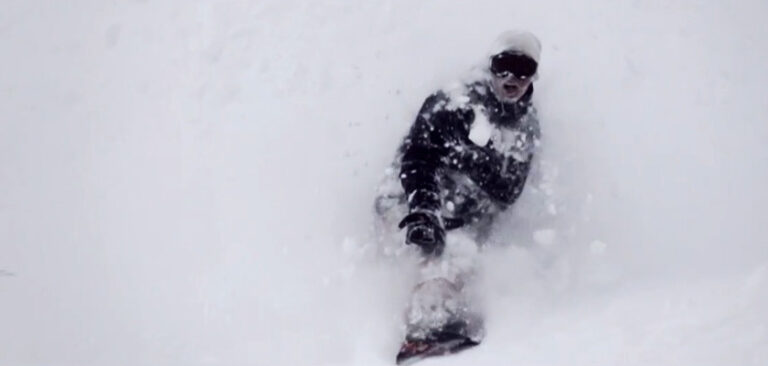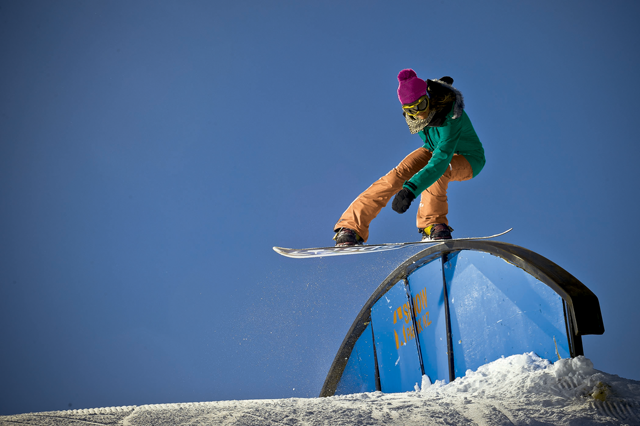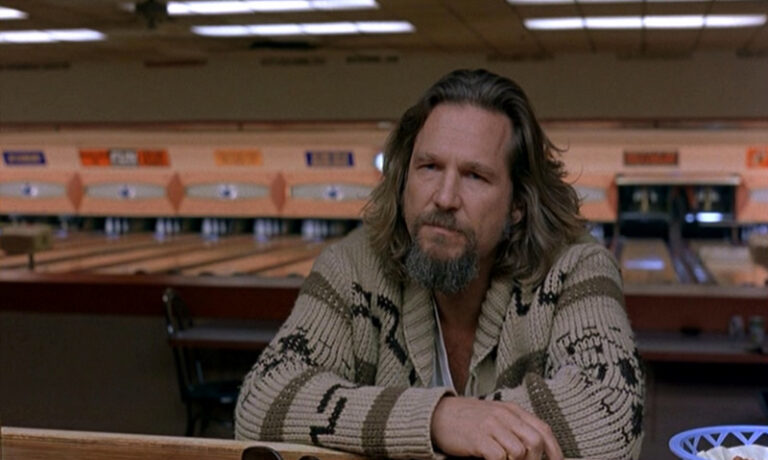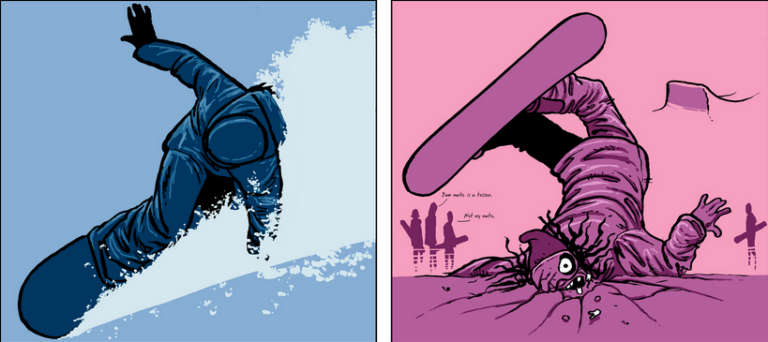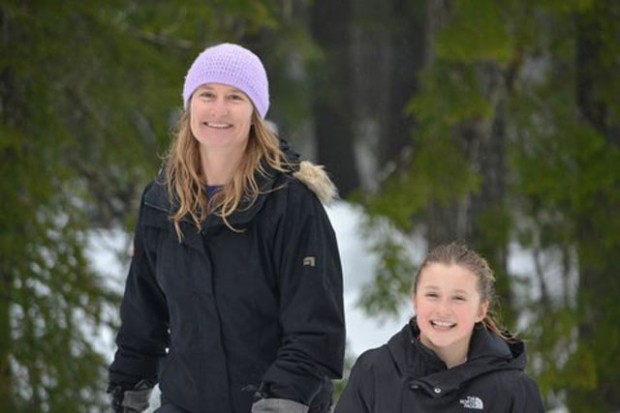
MEET DR KRISTIN JOHNSTON – DOCTOR AT WHISTLER MEDICAL CLINIC
JOB TITLE: Partner at Whistler Medical Clinic, British Columbia, Canada
HOURS: 30 to 50 hours per week
PAY: Enough to support a family in the mountains
PERKS: Having a really good academic job in a ski town and close relationship with my patients
DOWNSIDE: Stress. I hate not being able to get my patients into tests and see specialists quickly.
Running chalets or teaching snowboarding – these are the jobs that people most often associate with living in the mountains. However, these aren’t the only professions that can allow you to ride powder all year around and support yourself, plus a family.
Dr Kristin Johnston is one such example. She lives in the powder mecca of Whistler, Canada and works three days a week (plus one in every five weekends) as a doctor in a family practice, which is like our GP surgeries in the UK. She used to work shifts as a doctor-on-the-hill, treating everything from head injuries to broken bones on the slope. We found out how she makes it work…
How did you end up working as a doctor in Whistler?
I grew up in British Columbia. Whistler was like a second home to me because my parents built a cabin up here in the 70s, so we’ve always been pretty connected to the place. I studied for my undergraduate degree in Ontario, but I missed BC. So I came back to study medicine at University of British Columbia in Vancouver. When it came to choosing my elective (hospital placement), I picked Whistler and ended up working at the Whistler Medical Clinic!
What does your job entail?
Well, it’s a family practice so we see regular patients by appointment upstairs, but we also leave walk-in slots for tourists. Downstairs, there’s an emergency room for injuries off the hill. I see patients three days a week, but I also used to do shifts as a doctor-on-the-hill…
What’s a doctor-on-the-hill?
For about 10 to 15 days throughout the season, you basically freeski with a radio and a pack containing all your drugs on you. You get called by the ski patrol when there’s a more serious accident – usually around two or three times per shift.
The hardest part was dealing with trauma in the park. Sometimes you’ll have to intubate on the hill…
What kind of emergencies did you have to deal with?
Lots of head injuries! Chest injuries, abdominal injuries, like ruptured spleens. Fractures where they need pain management. Plenty of shoulder dislocations – we relocate the shoulders on the hill – and then medical issues like heart attacks or asthma attacks.
What was the most challenging part of being a doctor-on-the-hill?
Dealing with trauma in the park, like head or neck injuries where you sometimes have to intubate on the hill (insert a tube into a person’s windpipe to help them breathe).
It must have been a really stressful job…
It is, that’s partly the reason why I stopped doing it. My dad used to be a doctor-on-the-hill as well. He was an emergency doctor, so we’d try and do our shifts together. He would go to the big traumas and I would go to the accidents on scary runs, because he was getting a bit older and didn’t want to ski them.
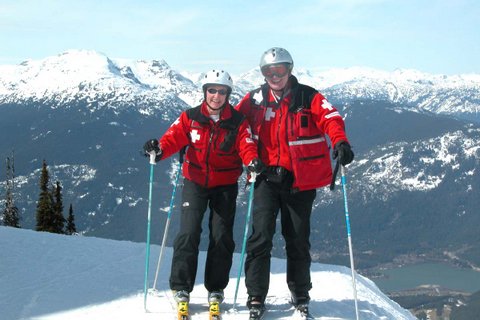
So, take us through your typical day in the surgery now?
I get up in the morning around 6.40am. I make my three kids their breakfast, packed lunches and get them off to school. Then I go to the clinic and see patient after patient until my lunch break. Sometimes I go down to emergency if one of my patients is down there. I’ll do some minor skin surgery stuff like take moles off or cast some minor fractures from the hill.
On my lunch break, I usually go for a mountain bike, a run or a cross-country ski. Then I’ll come back and finish the afternoon. I usually finish seeing patients by about 5.15pm, then I’ll do half an hour of charts (recording patients history). I’ll come home, make dinner and get all the kids to their respective activities. Then I get the kids into bed and do about an hour of charts to finish the day.
So you work three days a week, what do you do for the rest of the time?
In the winter, I’ll usually take a mountain bike spin class and then go skiing. In the summer, I go running, kite surfing or mountain biking. It’s a good balanced lifestyle. Sometimes I get over-scheduled with having three kids and a job, but I’m pretty good at fitting in my own stuff as well.
People want to be well up here. My 90-year-old patient got a mountain bike for his birthday!
Have you ever considered working as a doctor anywhere that isn’t the mountains?
It’s crossed my mind. Before I started in Whistler, my husband, son and I travelled and worked for four months around New Zealand and Fiji. I’d hate practicing in a city like Vancouver. I love being able to get to the trails in two minutes and run or cross-country ski on my lunch break.
I also love my patients here. We do see illness up here, but generally people want to be well. I like working with patients who want to get better. My 90-year-old patient just got a mountain bike for his birthday! That’s the typical patient up here, it’s really cool.
What advice would you give to a medical student who wants to work in the mountains?
Get yourself out there and into the ski towns you want to work. Do your elective there, get to know the doctors and sign up for stuff like doctor-on-the-hill. They don’t usually accept medical students but they’ll often accept residents.
Have you managed got an awesome job in a resort town? Or know someone who does something a bit out of the ordinary to live in the mountains? Let us know by emailing [email protected] and you could be featured in our next post!
Read more of our awesome How To Be A… jobs here!

